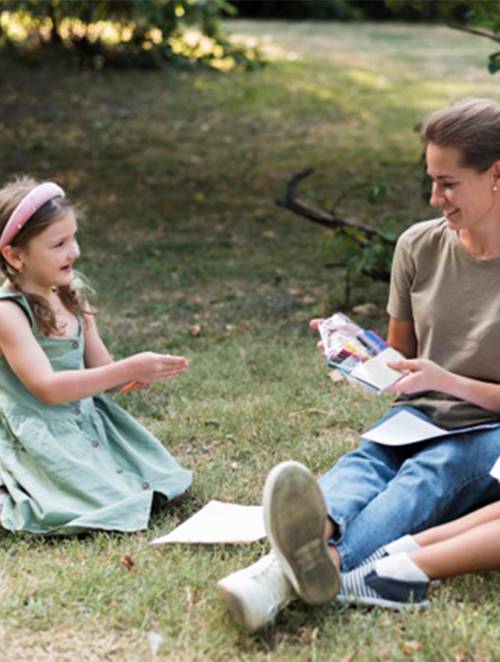Eight Reasons Why Children Should Learn to Code
 17323
17323

super easy
As adults, our fears hold us back from learning – the fear of failure, the fear of looking stupid, the fear of not measuring up to expectations, the fear of making mistakes. Children, on the other hand, have no such apprehensions and are therefore much quicker learners. Exposing them to as many experiences as possible, early in life, helps develop their personalities and harness their potential. As parents, we can play an important role in enabling our children to feel comfortable and empowered by technology, rather than being awed by it and consuming it passively. Coding (the colloquial term for programming) is one skill that can go a long way in making children feel comfortable with technology. Not only does it create a high level of familiarity with technology, but also it strengthens corollary skills such as math, logical reasoning, reading, spelling, and problem-solving. As they move to more advanced levels, coding helps children develop skills in geometry, trigonometry, statistics, data analysis, physics, and more. Let us explore in detail the benefits that coding can impart to our children.
1. Stokes the fire to explore
Children are inherently inquisitive. Their minds are like sponges, ready to absorb anything that comes their way. When they learn to code, they see a whole new world unraveling in front of them. Once their interest gets stoked, they want to discover this world and explore further without our parents having to prod them.
2. Promotes logical thinking
Logical thinking involves step by step analysis to arrive at a conclusion. Coding helps children use logical thinking techniques to solve problems. They learn to use logical operators (“AND,” “OR,” “NOR,” etc.) and combine them with selection, iteration, and other processes to achieve desired results, thereby developing their logical thinking skills. It must be noted here that while there are certain rules (“syntax”) that one must follow while coding, there is a flexibility to each coder on how they want to reach an outcome. The same problem can be approached in various ways and can have multiple solutions. With time children learn to find the most effective and elegant solutions, so coding provides scope for creativity as well as logical thinking.
3. Develops problem-solving attitude/ skills
Coding teaches children to approach problems systematically, to break complex problems down into smaller parts, and work through each one sequentially. As a programmer, even at the most initial level, children learn to debug their program through intelligent hypotheses and tweaking parts of their code, one component at a time, to test which one solves the problem. They might grow up to pursue any passion or profession, but the innate skill of problem-solving always stays with them and helps them in all walks of life.
4. Computational skills
Computational thinking comes before programming. It involves breaking down a problem into simple steps that a computer would understand. Though this might seem very simple, it can be very challenging. If one does not provide precise instructions, the computer may end up giving the wrong answer or failing to perform the required task because it may skip some of the steps that we humans take for granted.
When children learn computational thinking, it helps them to develop skills important for not only STEM subjects, but also across all fields of study. These skills are highly correlated with a non-verbal measure of intelligence.
5. Coding can encourage creative thinking.
Creative thinking begins with a questioning mindset. It can be taught by encouraging children to experiment, explore their ideas, question their assumptions, and be free to make mistakes. As mentioned earlier, coding can encourage children to think creatively. They can learn to effectively engage both hemispheres of the brain, and use their technical skills (left brain) to build the program, as well as their artistic and storytelling skills (right brain) to design a compelling and elegant program.
6. Developing resilience and perseveration
Many a time, while coding and debugging a program, children hit a wall. They may be faced with a very complex program that may have multiple problems. Solving one problem leads to another. They have to try and find alternative solutions, which can be daunting and exhausting. However, if they keep thinking about the problem, they do eventually come up with a solution. In the process, children learn the virtues of resilience and perseverance. They learn to bounce back from failure.
7. Learn a new language
The processes through which one learns a human language and a programming language are remarkably similar. Like any other language, children learn the syntax, rules, and framework to communicate with the computer. They learn to understand and appreciate a new language, which helps develop synapses in the brain and increases cognitive ability. Coding trains children’s minds to analyze and process different patterns and structures. It strengthens both written and verbal skills. Children who can code better understand how to organize their thoughts. Coding skills open the world for children.
8. Learn to go beyond textbook learning
With coding, children can experiment and learn themselves. They understand that there are no boundaries or limitations to one’s learning. Experimenting with code allows them to understand that sometimes the answers are not simple, and sometimes there is more than one answer to a problem. Through coding with a purpose, children can be taught learning experiences where real-world problem solving is at the center. Learning to code does not mean that we prompt all children to grow and become computer programmers. They should be allowed to pursue their dreams as they move into adulthood. We should see coding as a stepping stone to the development of valuable technical and creative skill sets that can enable children to thrive in the increasingly interconnected world. The least we can do is empower our next generation with the tools to be creative thinkers and problem solvers.
Follow us-
Instagram/ Facebook/ Youtube/ Pinterest





Leave a Reply